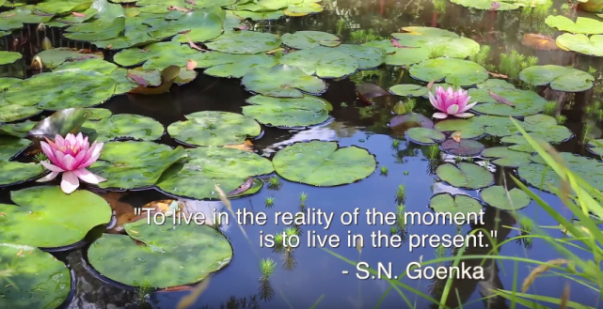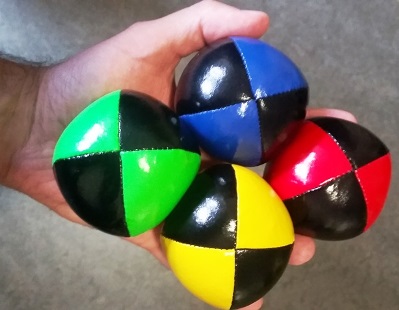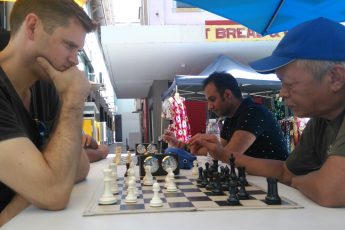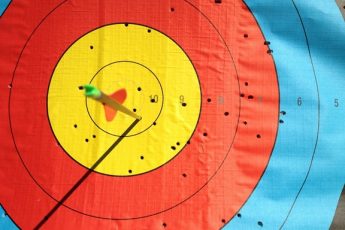
Imagine getting paid to work in a place like this?
At 21 years of age I’d just scored what for many of my peers at the time, would be considered the ultimate dream job. I was to work as the staff bartender on Hayman Island and help them open a newly refurbished venue aptly named, the Sandbar.
For those who don’t already know, Hayman Island is the most Northern Island in the Whitsundays located on the Great Barrier Reef in Queensland, Australia. It’s a private island dominated by a luxury resort often frequented by celebrities, including a stunning lagoon (see above), amazing snorkelling, proximity to gorgeous beaches, and many fun recreational activities like hiking, fishing, sailing and windsurfing.
Well, maybe I’ve made it sound great but, the reality was, it quickly become just like any other job.
Sure the first couple of months were a blur of activities, socialising and exploration but; after I’d seen most of the sights, sailed around Hook Island (YES, there’s actually an island with that name and NO, Peter Pan does not live there… sorry ;)) and been drinking with mates a few times at Magnum’s back in Airlie Beach, the novelty quickly wore off.
I distinctly remember at the time thinking to myself, is there something wrong with me? It would be difficult to find a more beautiful place in the world to work yet, I found that I just wasn’t quite happy, something was missing… I was living in paradise but it sucked, and I didn’t know why…
A friend I’d made on the island gave me some advice (a big thank you Gisele if you end up reading this). She told me I should try some meditation, in particular something called Vipassana.
She told me it involved a 10 day course at one of the centres on the mainland where I’d be required to sit in silence and meditate for around 10 hours each day. Yikes I thought, sounds intense!
She told me the meditation technique they taught was what Buddha had used to become enlightened. I must admit I’d didn’t exactly expect those kind of results for myself however, it DID at least grab my attention.
I’d heard there was a Vipassana centre in Blackheath in the Blue Mountains, New South Wales. I finished up my job on the island and headed down to Sydney and then out to Blackheath for my next adventure learning how to meditate.
Maybe this would make me happier I thought on the way down to the centre. It was about to give me a whole lot of happiness alright… but as the saying goes: be careful what you wish for…
I successfully completed the full 10-day course!
As a bloke who stands at 196cm in height (6 foot 5 inches), the sheer uncomfortableness of sitting on your ass for so long each day cannot be underestimated. After all, tall guys (myself included) aren’t exactly known for maximum flexibility. Aside from the awkwardness of sitting in one position in a room full of other students you can’t talk to, it was a great experience.
It’s kind of trippy what happens to your mind when your body has nothing to do but be still and breathe for 10 days. It’s hard to believe unless you’ve done the course yourself and had a similar experience however, on days 3 and days 7 I vividly remember experiencing mild hallucinations with open eyes. I can’t remember what they were about now but at the time I recall they weren’t at all scary, just unusual. I’d imagine they don’t put any chemicals in the food there (which is probably the best vegetarian food you will ever taste by the way) so, the only explanation I can come up with is that the hallucinations were my mind somehow reacting or responding to the mediation technique.
Also, although I made it all the way through the 10-day course, several others weren’t so fortunate.
I distinctly remember two guys that started the program who were hard-core smokers. The long days without nicotine hitting their bodies was simply too much to handle – one guy just went home after 3 days, the other lasted a little longer and gave up on day 5.
By the way, don’t be too quick to judge these fellas… most of us have addictions we’re not even aware of. For instance, smartphones, radios and TV’s also aren’t allowed during the 10 day course.
Reckon you could go for a weekend without an iPhone or Android in your hand? Try 10 days… trust me, it’s tough.
Anyway. So, how did I find the Vipassana and was it everything I’d hoped for at the time?
In short it was truly a unique experience and YES, I did genuinely feel happy, at peace with myself and very equanimoussss … (if you’ve done the course before you would have read that last word in S. N. Goenka’s dulcet tones).
BUT, for up to 6 months after the meditation course, I completely lost all passion, drive and ambition.
I’d lost my mojo!
The Vipassana technique had worked very well. A little too well in fact. It had completely stripped me of my ego (at least it felt that way) and in the process had massively reduce my motivation to achieve things. I specifically remember redacting the words ‘I’, ‘me’ and ‘my’ from my vocabulary at the time. It wasn’t easy to do but eventually I could go almost a whole day without using personal pronouns in everyday language, at least those referencing myself. This wasn’t something they’d taught us, just something I thought would be interesting to do. For a young bloke in his early 20’s I’m mindful it was probably quite uncommon, even a bit of a weird thing to do.
Having a very low ego and no drive at the time was a very foreign feeling. I’d imagine it’s maybe similar to what sufferers of depression might feel, as I’ve heard they can completely lose their motivation when going through serious bouts.
The only difference for me was that I wasn’t depressed… I was in fact incredibly happy, I just didn’t find myself wanting to achieve… well, anything.
What’s your definition of success?
If you’re like most of us you’ve probably grown up with the expectation that success is defined through achievement or the acquisition of material goods. Perhaps you’ll consider your life ‘successful’ if you raise a healthy family or, own a certain type of business or, if you achieve a certain position on the corporate ladder. Who knows?
Definitions of success are highly personal and no-one can really say what’s right or what’s wrong, after all, one person’s definition of success might be another’s definition of how not to live J
However, many years after my experience on Hayman and doing Vipassana I read about a 2002 study by the Harvard Business School that’s stuck with me. According to HBS Professor Howard Stevenson success can be defined through four different ‘satisfactions’ that go beyond the stereotypical definition of achievement alone. To read more about the study click here: http://hbswk.hbs.edu/item/four-keys-of-enduring-success-how-high-achievers-win
“Success that endures, they are discovering, stems from four particular sources that are often contradictory but all necessary: achievement, happiness, significance, and a legacy.
Juggling all four at once is a trick that requires constant practice”
What I noticed about the study was that these ‘satisfactions’ were easier for me to define when considered them in relationship to time. For instance, after reading the above article I began thinking of each metric as either an internal (as influencing my thoughts, moods or feelings), external (influencing the thoughts moods or feelings of others), present (something I can do now) or past/future (something that has already occurred or might happen in the future) as per below:
| Internal | External | |
| present | happiness | contribution |
| past/future | achievement | legacy |
Why was I so keen to break down this study to an easier way of thinking, or change it into a conceptual model I could understand?
Well, I’d read a few university studies over the years and a lot of them seem super promising when you skim over the intro/abstracts, but prove to be exceptionally light on practical applications through the body and summary pages.
This one seemed pretty important so, I was keen to get my head around it and attempt to integrate any useable takeaways that I could.
Also, by categorising these four key ‘satisfactions’ to either a present or non-present (past/future), and internal or external classifications, I began to better comprehend what they were getting at.
And what did I discover…? Well my interpretation might be different to others but…
I worked out that the key to unlocking each of the four areas for myself, lay in the conscious actions I took in the present moment, and nothing else.
At the end of it all the only thing we have control of is our thoughts, feelings and actions in the present.
Let’s break down the four ‘satisfactions’ to test out this logic.
Firstly consider Achievement. I categorised this as internal as we’re each have personal control of what we do, and this is primarily influenced by the actions we take as individuals. Considering the time element, it’s really about what you’ve either done in the past OR, what you’re going to do in the future. You can’t really achieve anything immediately right now in the present moment (or at least anything of significance).
Achievements are usually completed over time by repeated and focused actions. For instance, to build a house it takes many days to lay the foundations, put up the walls, the trusses, add the roof, and finalise all the internal plumbing, wiring and fittings, paint the rooms, etc.
Similarly I began to think of Legacy as something that’s mostly about the future such as how the world will be affected after you’re gone. Although it can also be about the legacy you’ve already left behind in the past. This should be categorised as external as it is really about what you leave behind for others.
Contribution was an interesting ‘satisfaction’. I interpreted this as what I do in the present moment that affects the external world. For instance, how was my everyday work impacting the lives of my clients and how was I contributing to society in other areas of my life as well.
Finally, I got to Happiness. This metric seemed an altogether tricky one.
I generally consider myself a happy and well balanced person. However, an interesting point made in the study was that happiness and achievement were NOT always compatible as the state of being happy, might actually reduce drive or your passion in some way.
Looking back at my time on Hayman Island, my Vipassana at Blackheath and my massive slump in motivation for 6 months afterwards, this is EXACTLY what had happened to me. I’d been focused on only one area of my life, and as a result I hadn’t felt very successful. At one end my supposedly great achievement (dream job at Hayman) then swinging to the opposite end of the pendulum finding great Happiness (at Vipassana).

Think about this for yourself… if you’re 100% happy with your life as it is, are you going to feel driven to take actions to change it, or move in a different direction? Probably not.
For most of us though, we’re rarely 100% happy with our current lives. We either feel a sense of aspiration for what might become in the months and years ahead AND we also feel varying degrees of frustration, stress and pain that we experience while we’re living in the present, in the process of ‘achieving’ things.
Once we achieve great tasks of importance or maybe acquire something of significance these positive feelings are only momentary and eventually ‘arise then pass away’ as Vipassana teaches.
However, what I think meditation and in particular Vipassana severely lacks is that, we’re not all trying to become the next Buddha. For many of us a sense of achievement or completing tasks is just a natural part of living in the modern world.
For instance, imagine an Olympic athlete going through their typical training week just being ‘happy’ trying to prepare for competition. They’d never get anything done. The reality is they’re focused on pushing themselves further and further in each training session attempting to maximise their results at every opportunity. That is, they’re trading short term pain and discomfort for the chance of longer term pleasure or achievement. Sure, they might be ‘happy’ during or after a particularly successful training session or race however, being ‘happy’ is not going to get you the gold medal if you don’t have the fitness, strength or technique to compete on the world stage in the first place.
Let’s consider a more common example, a housewife trying to get her kids ready for school. If all she focused on after waking up was being happy the kids might not get breakfast and they’d certainly struggle to get to the school gate.
Obviously happiness and achievement are internal states of being that exist together in some kind of flux. Before reading the HBS study I never really thought of them as being connected in this way.
In contrast, I believe contribution and legacy are just external manifestations of happiness and achievement.
If we think about it, it makes complete sense. You could achieve everything that might define a successful life in the material sense, a great car, a wonderful house a loving family perhaps a great job… but if you’re not happy, or don’t enrich the lives of those around you, life’s likely to end up feeling pretty hollow, maybe pointless at some time or another.
On the flip side, if we don’t ‘achieve’ anything material for ourselves and just focus on helping or making other people happy it’s likely we’ll end up pretty sad ourselves. For instance, Mother Theresa was an inspiration to millions but if you know about her diaries they found after she passed away, they revealed a sad truth… that she was a conflicted and deeply depressed person on the inside.
If we only make ourselves happy then we’ll maybe end up as raving narcissists or living in some hippy commune somewhere. Those places were everywhere in the 60’s but I don’t see too many people singing Kumbaya these days!
Conclusion
Now, it’s all well and good me sharing these ideas about success but, what answers did I come up with for myself?
Well, I’m glad you asked. Here they are:
WHAT MAKES ME HAPPY NOW IN THE PRESENT?
Time with my partner, family, & friends; building a business; investing, reading, writing, playing chess, listening to music, gardening, keeping fit strong and healthy, watching interesting films.
WHAT DO I WANT TO ACHIEVE IN THE FUTURE?
Grow my wealth advice business; continue improving my health, become a loving Father and husband and, buy a hobby farm in the next few years.
HOW AM I CONTRIBUTING NOW IN THE PRESENT?
I help clients by building and protecting their wealth. I support the social chess scene in Brisbane. I’m an active member a Toastmasters club. Using this blog to inspire positive change in others.
WHAT LEGACY WILL I LEAVE BEHIND FOR THE FUTURE?
An enterprise that helps people improve their money, health and mindset. Assets to ensure my family are well supported. A blog that brings people together, shares knowledge & resources and has a positive influence on people from different parts of the world.

ACTION STEP: Now it’s your turn. I challenge you to STOP reading this now, make yourself a coffee/tea, give yourself 10 minutes and do these same exercises for your own life … I’m sure you’ll come up with some interesting answers.
WHAT MAKES ME HAPPY?
____________________________________________________________________________________________________________________________________________________________________
WHAT DO I WANT TO ACHIEVE?
____________________________________________________________________________________________________________________________________________________________________
HOW AM I CONTRIBUTING TO THE WORLD IN THE PRESENT?
____________________________________________________________________________________________________________________________________________________________________
WHAT LEGACY WILL I LEAVE BEHIND FOR THE FUTURE?
____________________________________________________________________________________________________________________________________________________________________
Keep these answers to yourself, feel free to post them below or, if you’d prefer, email them to me at [email protected], I’d love to hear about them.
I know these questions might seem highly personal but, keep in mind the following… life’s short (unless you believe in reincarnation, but that’s a future blog post ;).
There’s no point worrying about what other people think of you or bothering about what’s going on in somebody else’s head.
Also, spammers, haters, trolls aren’t welcome on this blog and will be skinned alive (I mean ‘moderated’) so you don’t have to worry about being judged by others. It’s a safe space.

These days I don’t aim for paradise on some luxury island and I certainly don’t plan on attaining some kind of enlightened perfection.
Instead, I’ve learned the art of juggling and that’s how I find balance between happiness, achievement, contribution and legacy…





Great read Adam! Here are my answers….
WHAT MAKES ME HAPPY NOW IN THE PRESENT?
I love taking road trips with friends having interesting conversations and discover new places, go for hikes, sipping coffee, chocolate…. The sun on my skin at the beach, the look on a clients face who has a breakthrough, writing about things I am passionate about, the feeling in the midst of a boxing session, rainy days where all you can do is sink into the couch with a Harry Potter movie and did I mention chocolate…?
WHAT DO I WANT TO ACHIEVE?
I want to be successful in my business both for the sake of my clients and the growth of my financial security for my kids and myself. -And doing something you love so it doesn’t feel like work, that is a pretty awesome everyday situation to have so one doesn’t just live for the weekends and holidays.
HOW AM I CONTRIBUTING TO THE WORLD IN THE PRESENT?
I am helping people get out of any mindset rut, overcome obstacles that prevent them from everyday growth and finding their confidence.
I try to have a mentality of giving and supporting in any situation. I am writing blogs where I aim to give light at those everyday circumstances or thought patterns that sometimes stop us or slows us from what we want to achieve, that we all have but sometimes feel like we are the only once…
WHAT LEGACY WILL I LEAVE BEHIND FOR THE FUTURE?
A business that will help people grow and get out of their limiting beliefs, not only now but be able to overcome any triggers in the future. Be a soundboard to my kids as long as I live, I will always be their mum no matter the age. Be a person that lives up to my values, standards and what I teach (on most days anyway….. 😉 so I can be an influence in peoples lives, not only by the way I teach but what also by what I do and how I do it. 🙂
Brilliant Mariann. Thanks for sharing! 🙂
A business that will help people grow and get out of their limiting beliefs, not only now but be able to overcome any triggers in the future. Be a soundboard to my kids as long as I live, I will always be their mum no matter the age. Be a person that lives up to my values, standards and what I teach (on most days anyway….. 😉 so I can be an influence in peoples lives, not only by the way I teach but what also by what I do and how I do it. quotes about sunny day
Love your response AmityThomas. Apologies for the delayed response. I need to update my blog more often! 🙂